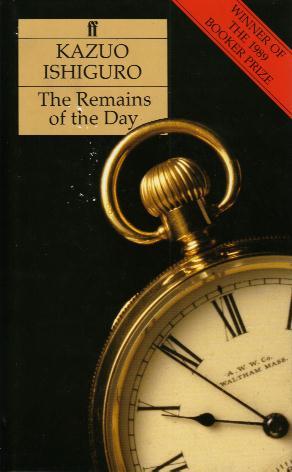

He talks about the importance of drawing up a proper staff plan, and how he was once complemented on his silver polishing and how this might have had a small but significant impact on an important international matter.

He speaks of great butlers, and an old, defunct society of butlers, and one might get the idea that all Mr Stevens has ever cared about is serving his employer.

His narrative goes back and forth from the heyday of Darlington Hall in the 30s to the present day, when he looks forward to seeing Miss Kenton, once the chief housekeeper, again.Ī great deal of Mr Stevens' reminiscing is about the duties of a butler. Mr Steven meanders, physically and mentally. After some back and forth about the nature of Mr Stevens' trip and his previous employer, Lord Darlington, he gets underway. His employer lends him his automobile while he goes on business to London. It is the 1950s, and the estate where he has served for decades has just been purchased by a rich American. He is a master of voice and circumspection, much like his character, Mr Stevens, the head butler in charge of Darlington Hall.Īs Remains of the Day opens, Mr Stevens is planning a day trip to see an old colleague who left Darlington Hall many years ago. Kazuo Ishiguro slowly, languorously unwinds his small-moments-of-great-import stories, with narrators who only gradually reveal what the story is really about. But lurking in his memory are doubts about the true nature of Lord Darlington's "greatness" and graver doubts about his own faith in the man he served. At the end of his three decades of service at Darlington Hall, Stevens embarks on a country drive, during which he looks back over his career to reassure himself that he has served humanity by serving "a great gentleman". The Remains of the Day is a profoundly compelling portrait of the perfect English butler and of his fading, insular world in postwar England.


 0 kommentar(er)
0 kommentar(er)
